In March 2025, STEP Nepal hosted a training in first aid, fire safety, and earthquake preparedness for workers in dyeing units. This session aimed to strengthen participants’ skills, ensure workplace safety, and enhance response strategies during emergencies, reinforcing STEP’s commitment to creating safer, more resilient work environments.
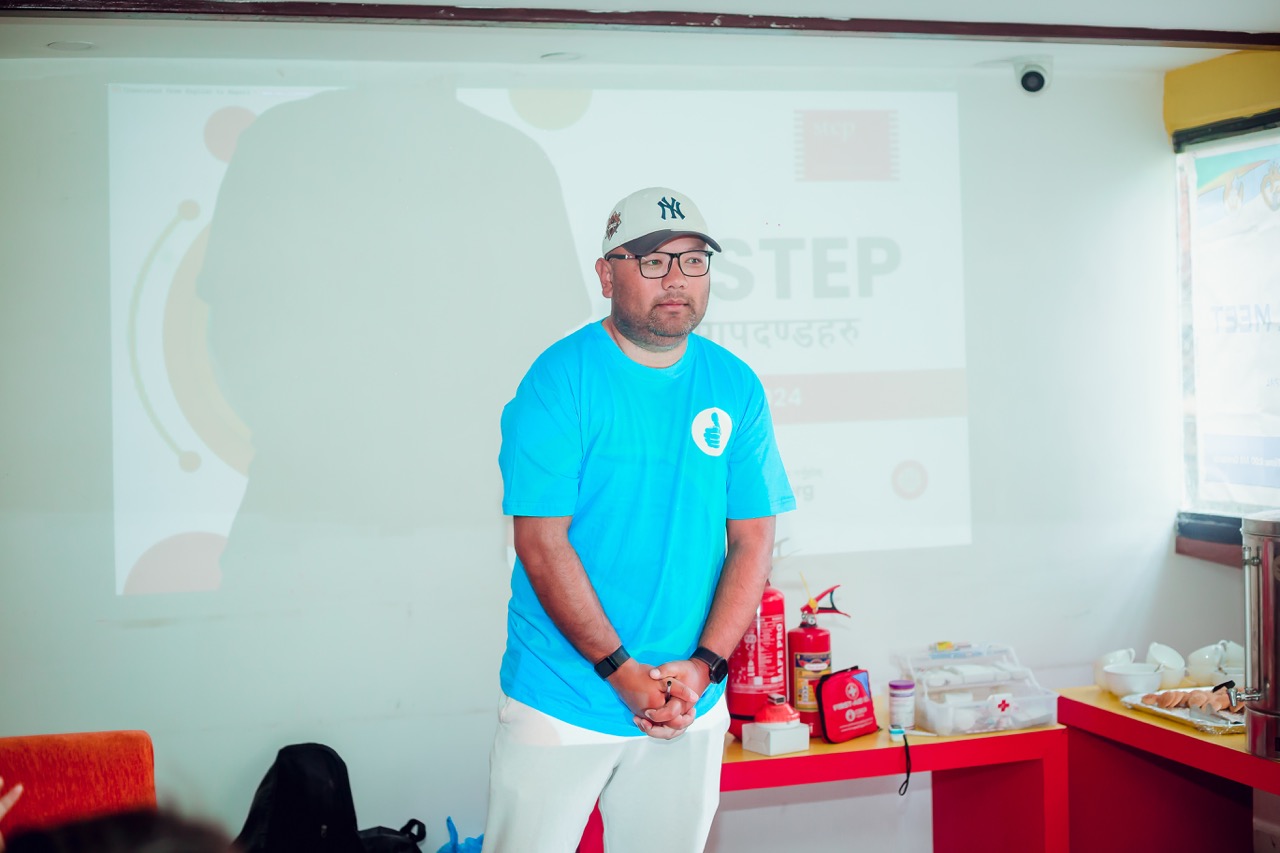
As workplace risks evolve, ensuring safe and healthy conditions in the handmade carpet industry is more vital than ever. STEP’s latest training on first aid, fire safety, and earthquake preparedness supports this goal by equipping workers in Nepal’s washing and dyeing units with practical knowledge to prevent accidents and respond to emergencies. In line with the World Day for Safety and Health at Work, the training reinforces a culture of safety—one where employers, workers, and organizations share responsibility for reducing injuries and saving lives.
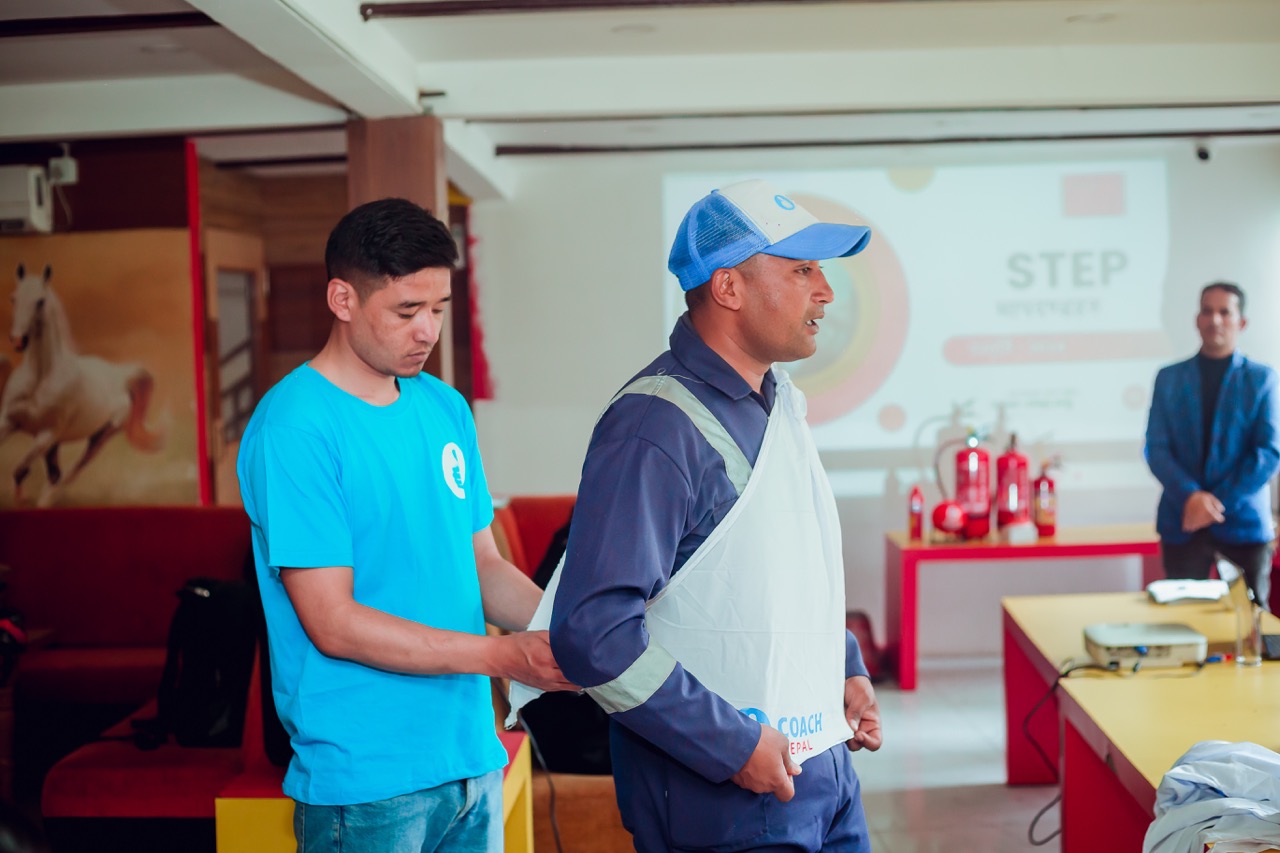

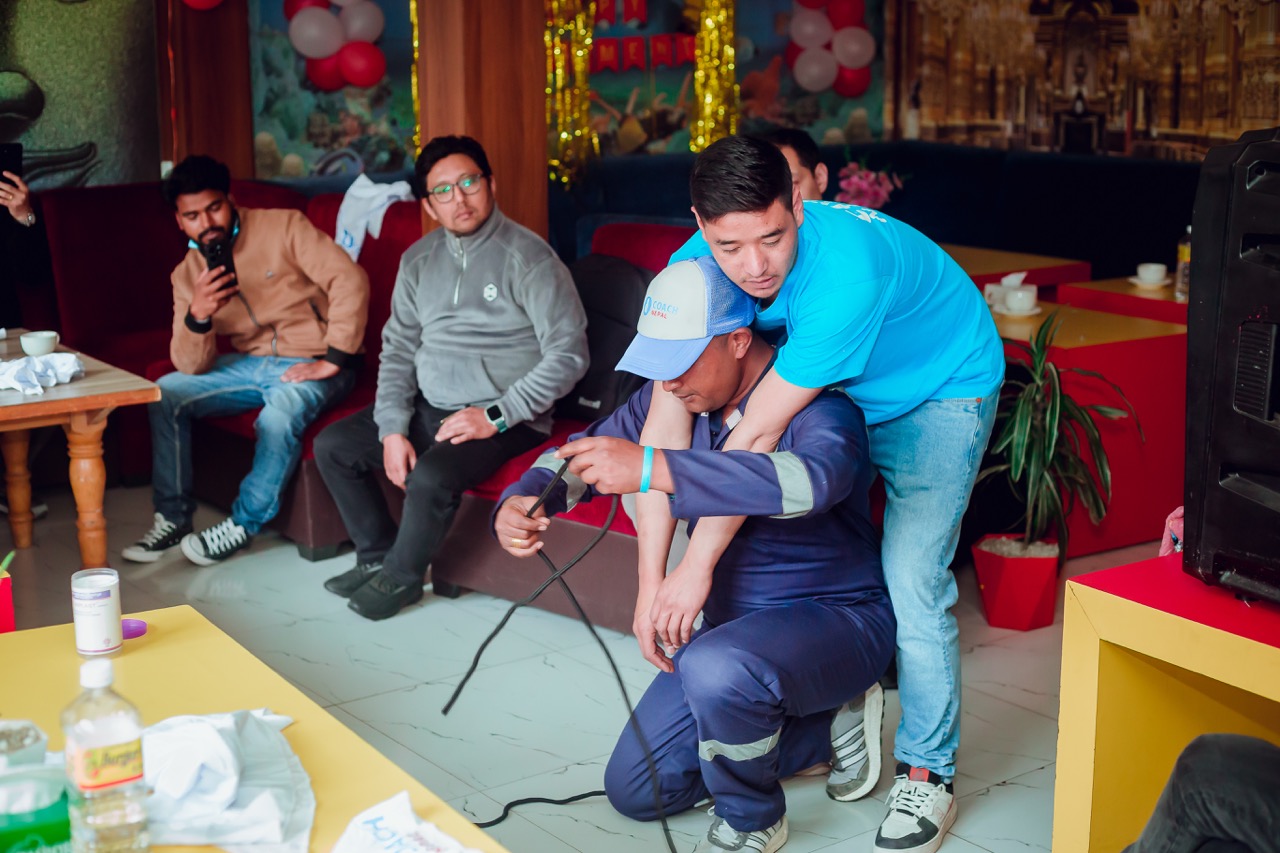
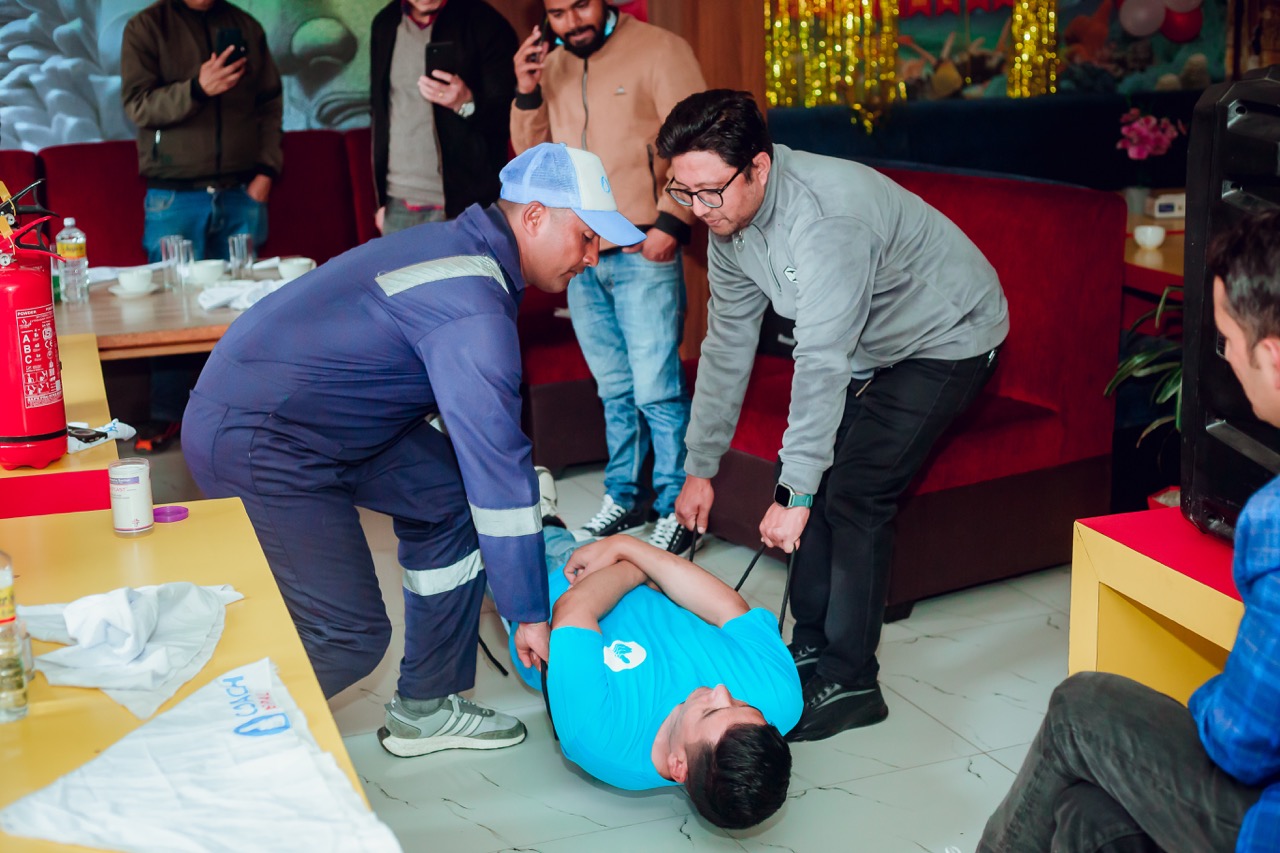
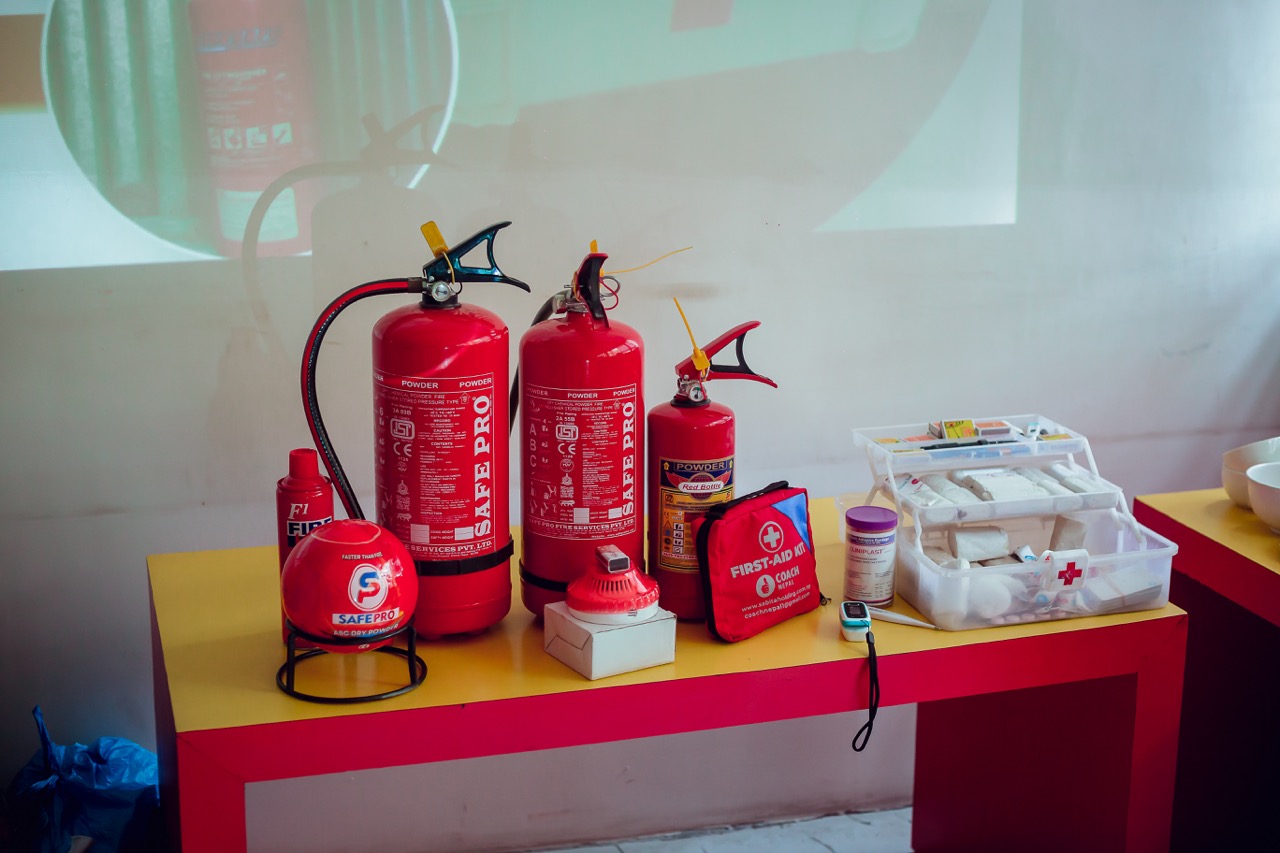
A Day of Training: Strengthening Local Capacities
On 12 March 2025, STEP Nepal hosted a full-day training session at a Kathmandu dyeing and washing Unit. The event brought together 12 representatives from various dyeing units and 11 members of the STEP field team. Focused on three critical areas—first aid, fire safety, and earthquake preparedness—the training aimed to reinforce participants’ existing knowledge and equip them with updated practices to use in their workplaces. For many, this refresher training was an important opportunity to review best practices and fill gaps in their safety procedures.
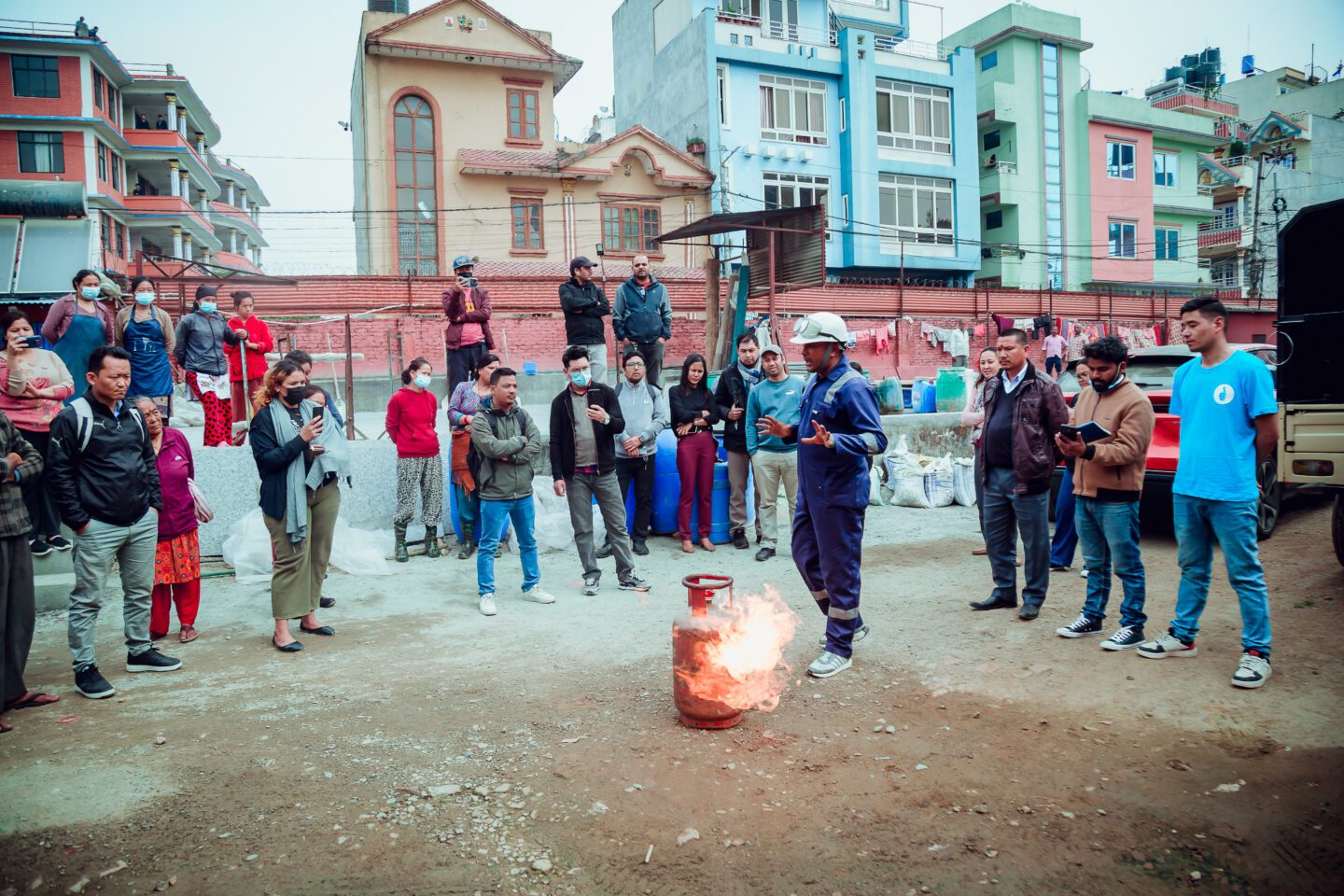
“Although we’ve had training before, we often rely on our own knowledge, and this session gave us the chance to refresh and sharpen our skills. For example, while we’ve had fire extinguishers on-site, I have never learned the best way to use them until now.”
— Kirtiraj Lama, a Dyeing Master at a STEP-affiliated unit
Training Content and Key Areas Covered
First Aid: Participants received hands-on training in dealing with common injuries, focusing on burns, falls, fractures, and head injuries. They learned how to use locally available materials like cloths, ropes, metal rods, and blankets for dressing wounds, creating stretchers, and safely transporting injured individuals to health providers. The session also included techniques for handling fractures, bleeding, and head injuries, as well as basic orientation on the contents of a first aid box and the importance of essential medicines and supplies.
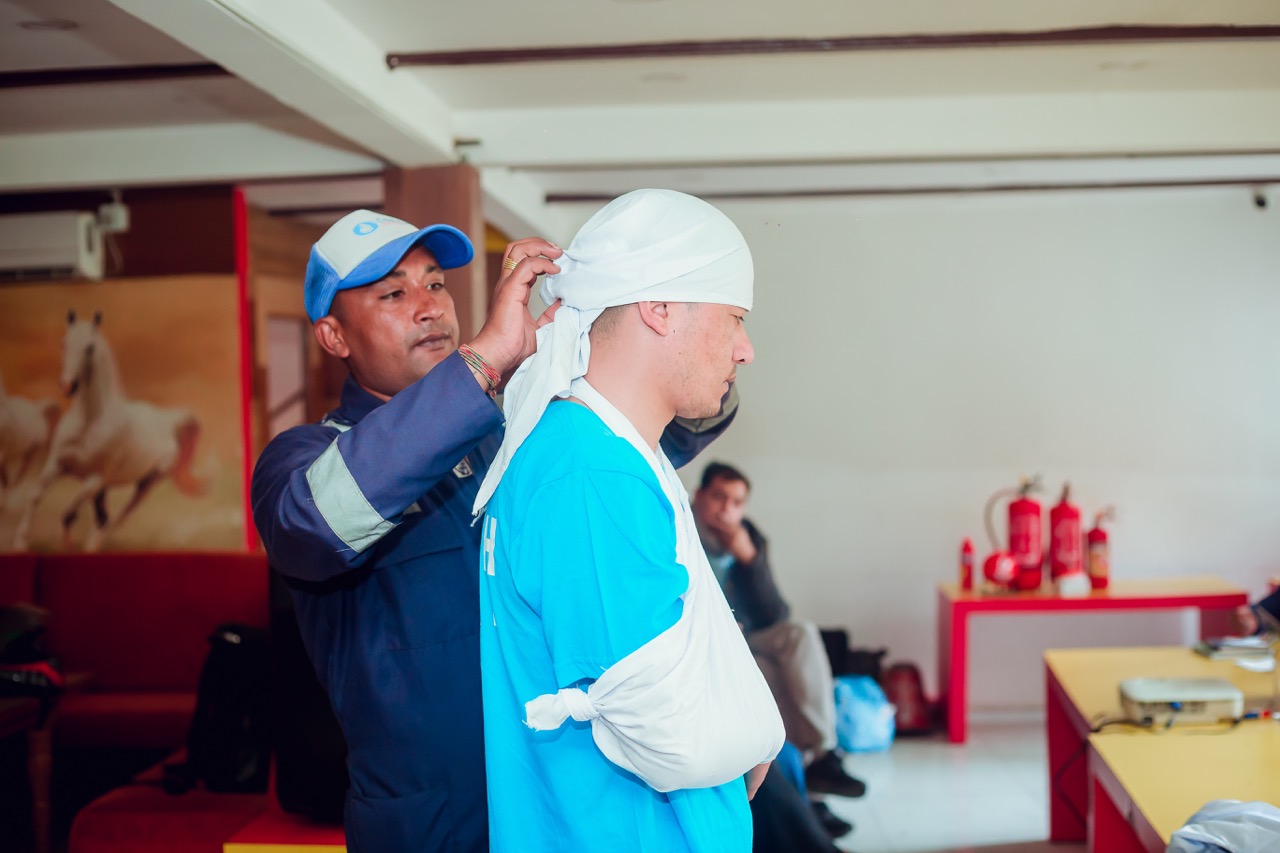
Fire Safety: The training included a detailed explanation of fire classifications (A, B, C, D) and the immediate response to fire emergencies, such as using the PASS method (Pull, Aim, Squeeze, Sweep) to operate fire extinguishers. Participants also learned how to recognize different fire sources—such as gas cylinders, factory fires, and explosions—and discussed emergency preparedness within units, including fire protection devices, installation of smoke detectors, and identifying collection points. There were hands-on demonstrations on using fire extinguishers and making use of locally available items to combat immediate fire risks.
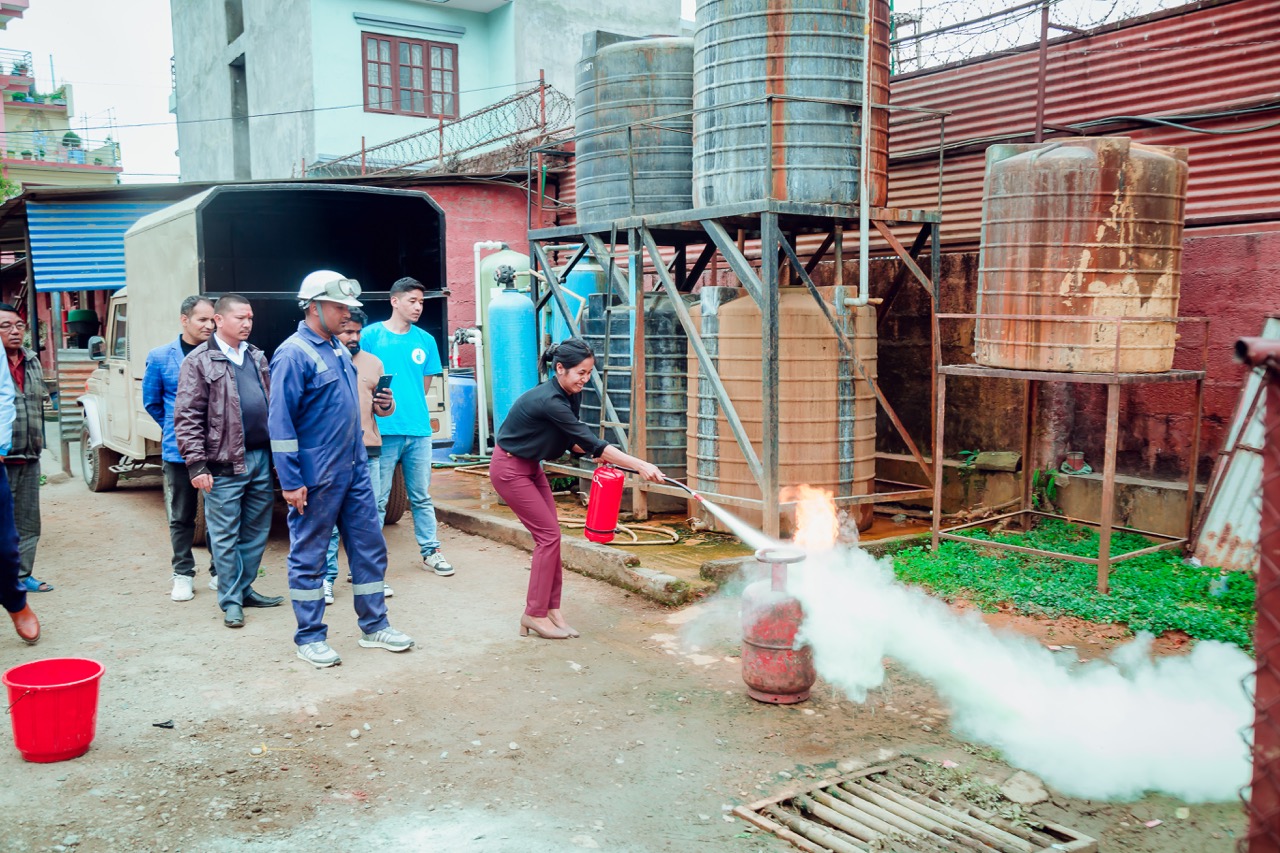
Earthquake Preparedness: Given Nepal’s history of devastating earthquakes, these drills were critical in reinforcing the importance of safety measures to reduce panic and ensure a quick, organized response in case of an emergency. In fact, even in the past few months, the region has experienced multiple small to medium-sized tremors — a clear reminder of the need for ongoing preparedness. By focusing on first aid, fire safety, and earthquake response, STEP’s training supports a culture of prevention and equips workers in Nepal’s dyeing units with practical tools to protect themselves and others.
“We’ve experienced earthquakes before, but this training reinforced critical techniques to stay safe and protect others in an emergency.”
— Ram Chaudhary, Manager at a STEP affiliated dyeing and washing unit
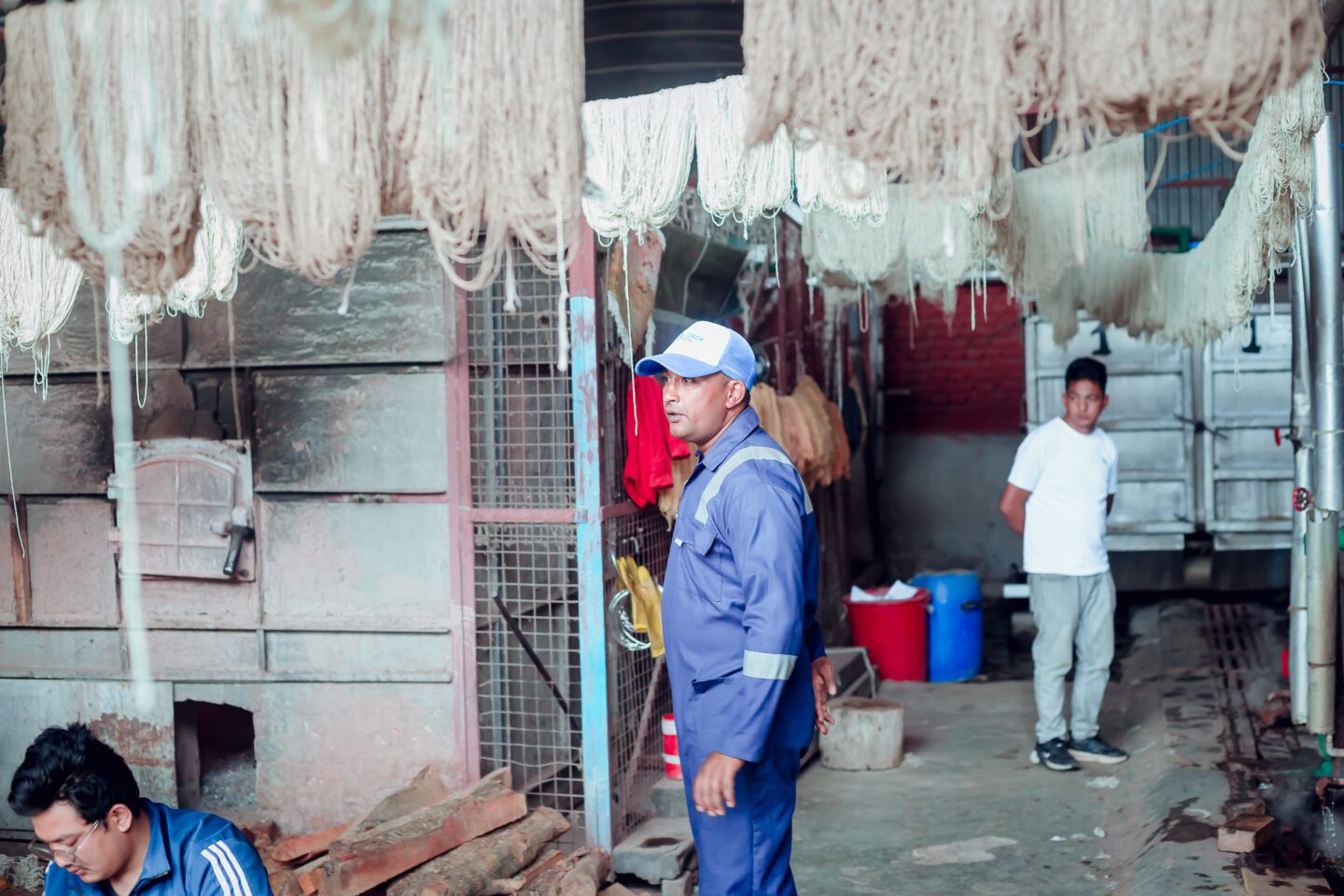
Held directly in the participating workshop, these hands-on modules allowed participants to rehearse real-life emergency responses using equipment already available on-site, making the training even more relevant and practical.
Training for Resilience: Empowering Workers and Communities
Ensuring safe working conditions is at the heart of Label STEP’s mission and embedded within its core Standard:, Health and Safety. With over 20 compliance criteria, STEP auditors ensure that workplaces meet high standards of safety, while also providing ongoing support to workshop owners to drive continuous improvement. STEP’s approach goes beyond simply meeting these requirements. Through tailored guidance, it helps workshop owners enhance everything from ventilation systems to earthquake-resistant structures. At the same time, STEP’s Weaver Empowerment program plays a key role in encouraging workers to actively participate in improving their own work environments. Not only do these safe spaces prevent accidents, but they also foster solidarity, trust, and a shared sense of responsibility at work.
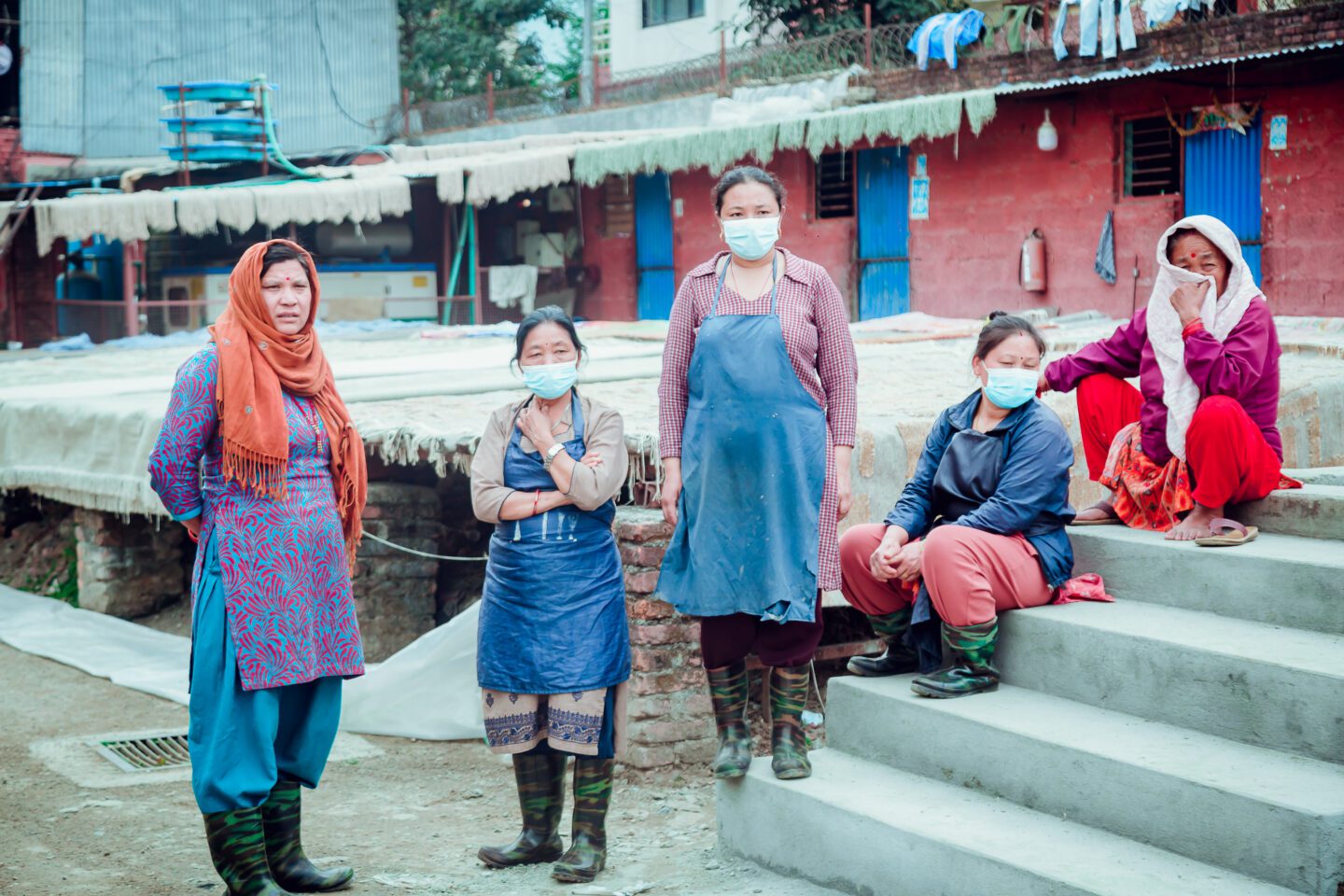
Nepal’s history of devastating earthquakes and floods has shown how workplaces can suffer greatly during natural disasters, with many dyeing units still vulnerable to such risks. This latest training was a crucial step in ensuring these workplaces are more resilient moving forward and just one example of how STEP’s Weaver Empowerment is making working conditions safer. By integrating these topics into one training, STEP ensures a comprehensive approach to risk reduction that strengthens local resilience.
“In past incidents, we struggled because we hadn’t practiced the right techniques. This training helps us to act more efficiently and calmly during any emergency.”
— Kirtiraj Lama, Dyeing Master from STEP affiliated unit
As STEP continues to expand, initiatives like these are key to equipping workers not only with the knowledge to protect themselves but also to lead safety efforts in their communities. On this World Day for Safety and Health at Work, STEP reaffirms its commitment to making protection a shared responsibility—starting on the ground, with those who need it most.

